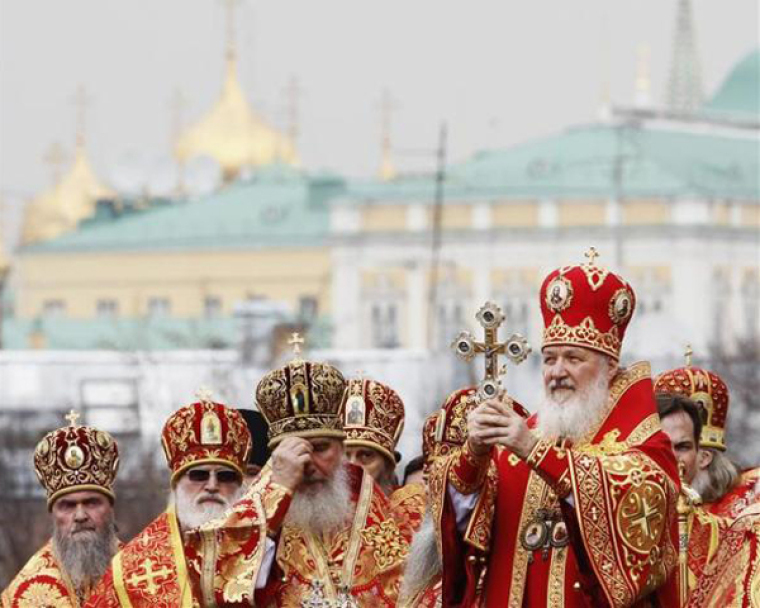Russian Orthodox Church: Boycotted Crete Council is not 'Pan-Orthodox', but is an 'important event'
The Russian Orthodox Church recognized the Crete Council as "important" but said it couldn't be taken as "pan-Orthodox" after four churches boycotted the event.

At least 10 out of 14 patriarchates of the Eastern Orthodoxy participated in the historic Holy and Great Council in the Greek island of Crete on June 20-25. The event was 55 years in the making, and it was the first of its scale since the year 787 before the Great Schism between the Roman Catholic Church and the Orthodox Church in 1054.
The Holy Synod of the Russian Orthodox Church in Moscow missed the Council which it later regarded as of great significance.
Interfax-Religion quoted Vladimir Legoyda, the head of the Synodal Department for Church, Society and Media Relations as saying that the Crete Council "was an important event in the history of the Orthodox Church council process."
Moscow's Synodal Biblical and Theological Commission would also study the documents discussed and approved by the Crete Council then submit their findings.
The churches of Bulgaria, Antioch, Serbia, and Georgia decided early on not to attend the Council owing to unresolved differences and complaints.
The Patriarchate of Antioch also released an official statement that undermined the Crete Council as only a "preliminary meeting towards the Pan-Orthodox Council" and does not consider its documents as final.
The Moscow Patriarchate, representing two-thirds of the Orthodox population and substantial financial capacity, announced it would not attend the major meeting only days before its scheduled opening. It cited then that the Council "will not be pan-Orthodox in nature and will have no authority" because of the absence of the other sister churches.
"The Holy Synod determined that the Council, which took place in Crete, cannot be regarded as pan-Orthodox, and the documents it approved as expressing a pan-Orthodox consensus," said Legoyda, as reported by Interfax-Religion.
Unlike the Roman Catholic Church, the churches of the Eastern Orthodoxy are self-governing or "autocephalous" although it recognizes Patriarch Batholomew of Constantinople as the "first among equals."
The 10 Council participants agreed to meet again in a summit after seven years.
"There will no doubt be more opportunities for such councils," council spokesman Rev. John Chryssavgis told Religion News Service. "Hopefully these will not take as long to prepare and organize," he added.
 Christians don't have to affirm transgenderism, but they can’t express that view at work: tribunal
Christians don't have to affirm transgenderism, but they can’t express that view at work: tribunal Archaeology discovery: Medieval Christian prayer beads found on Holy Island
Archaeology discovery: Medieval Christian prayer beads found on Holy Island Presbyterian Church in America votes to leave National Association of Evangelicals
Presbyterian Church in America votes to leave National Association of Evangelicals Over 50 killed in 'vile and satanic' attack at Nigerian church on Pentecost Sunday
Over 50 killed in 'vile and satanic' attack at Nigerian church on Pentecost Sunday Ukrainian Orthodox Church severs ties with Moscow over Patriarch Kirill's support for Putin's war
Ukrainian Orthodox Church severs ties with Moscow over Patriarch Kirill's support for Putin's war Islamic State kills 20 Nigerian Christians as revenge for US airstrike
Islamic State kills 20 Nigerian Christians as revenge for US airstrike Man who served 33 years in prison for murder leads inmates to Christ
Man who served 33 years in prison for murder leads inmates to Christ


 Nigerian student beaten to death, body burned over ‘blasphemous’ WhatsApp message
Nigerian student beaten to death, body burned over ‘blasphemous’ WhatsApp message 'A new low': World reacts after Hong Kong arrests 90-year-old Cardinal Joseph Zen
'A new low': World reacts after Hong Kong arrests 90-year-old Cardinal Joseph Zen Iran sentences Christian man to 10 years in prison for hosting house church worship gathering
Iran sentences Christian man to 10 years in prison for hosting house church worship gathering French Guyana: Pastor shot dead, church set on fire after meeting delegation of Evangelicals
French Guyana: Pastor shot dead, church set on fire after meeting delegation of Evangelicals ‘Talking Jesus’ report finds only 6% of UK adults identify as practicing Christians
‘Talking Jesus’ report finds only 6% of UK adults identify as practicing Christians Mission Eurasia ministry center blown up in Ukraine, hundreds of Bibles destroyed: 'God will provide'
Mission Eurasia ministry center blown up in Ukraine, hundreds of Bibles destroyed: 'God will provide' Church holds service for first time after ISIS desecrated it 8 years ago
Church holds service for first time after ISIS desecrated it 8 years ago Burger King apologizes for 'offensive campaign' using Jesus' words at the Last Supper
Burger King apologizes for 'offensive campaign' using Jesus' words at the Last Supper Uganda: Muslims abduct teacher, burn him inside mosque for praying in Christ’s name
Uganda: Muslims abduct teacher, burn him inside mosque for praying in Christ’s name